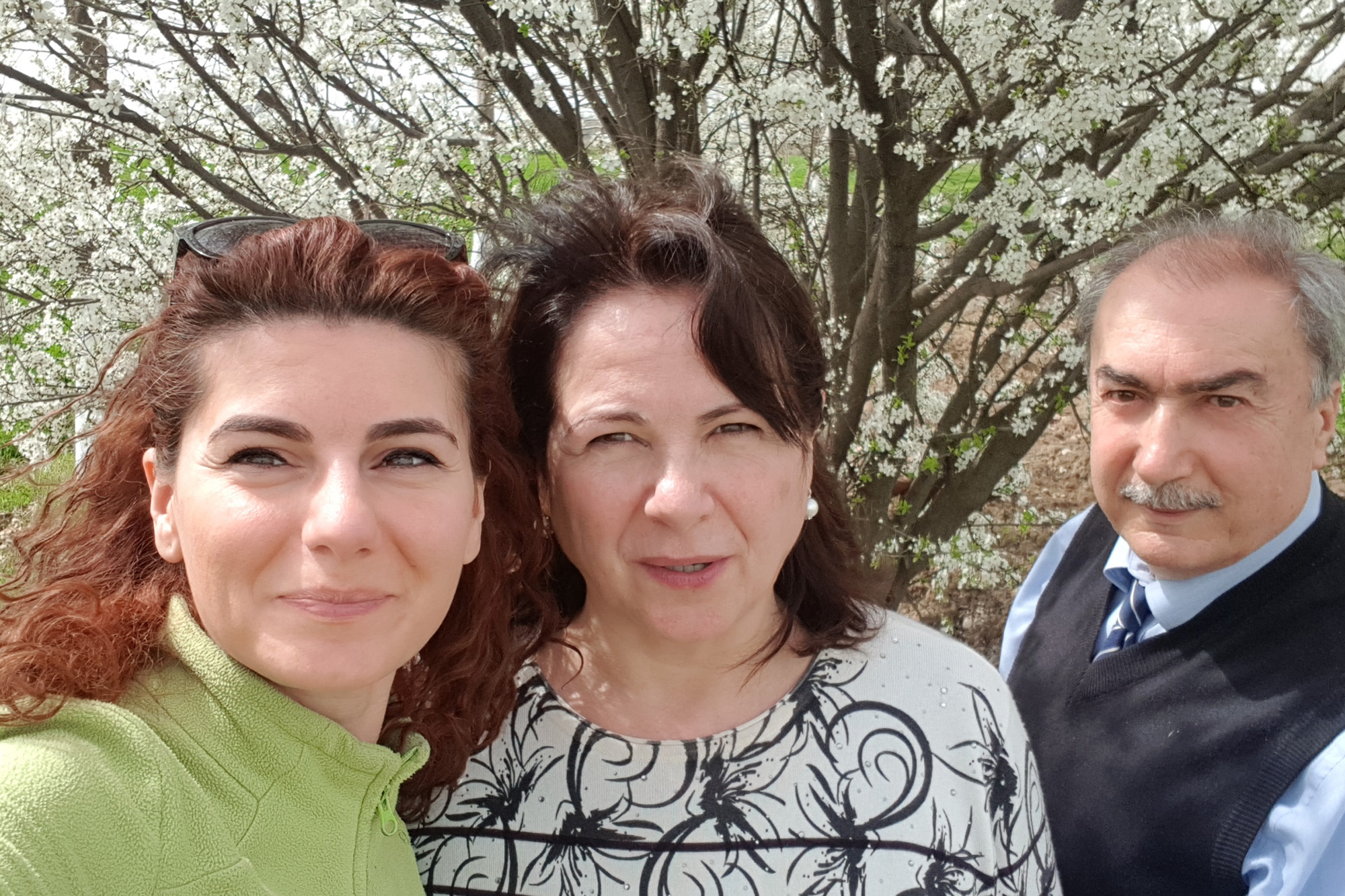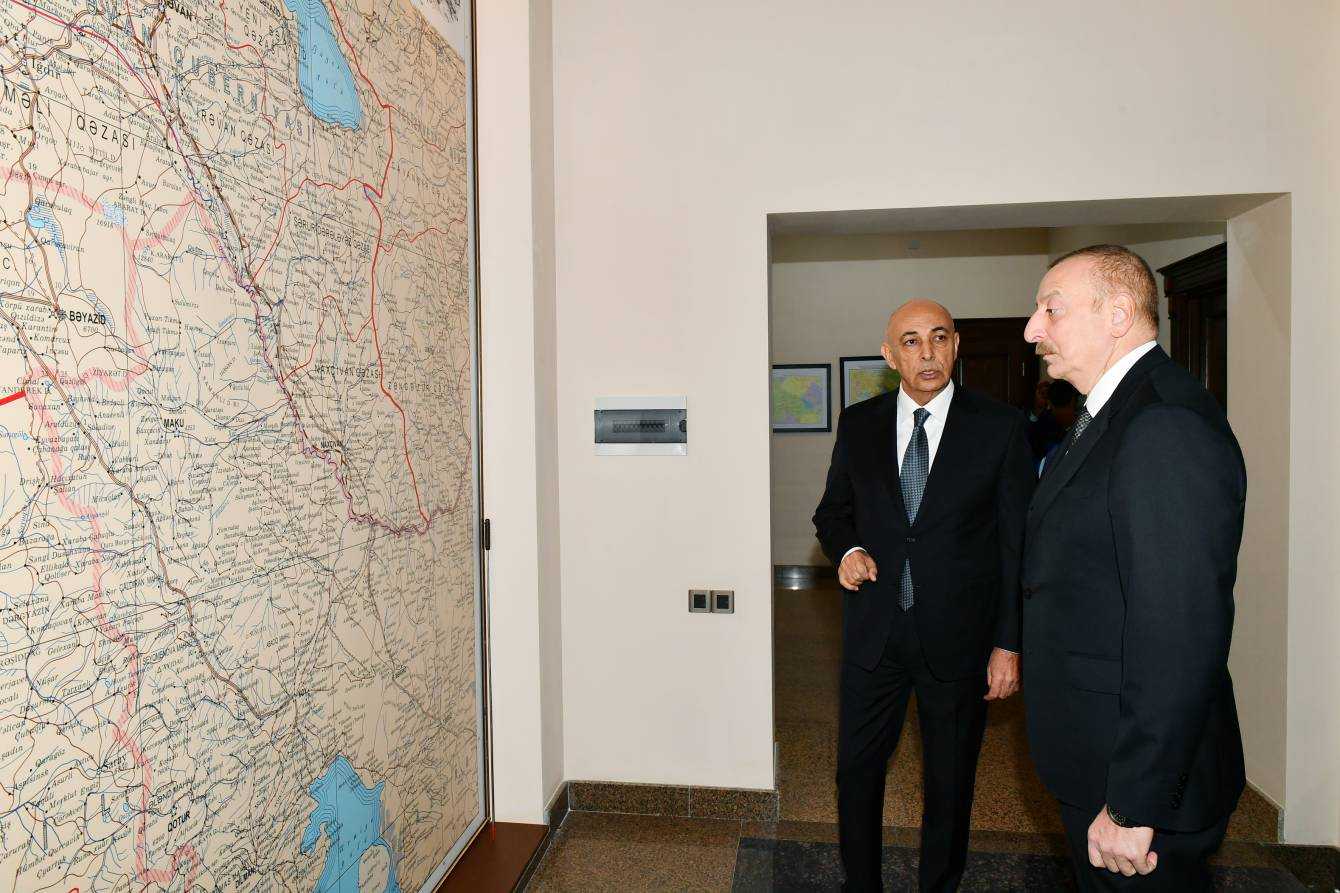
Leyla and Imdad were only children when the First Nagorno-Karabakh War broke out. In part two of this series on the lives of Azerbaijani internally displaced persons (IDPs), they tell the stories of their lives after the end of the First Nagorno-Karabakh War.
[Read: Azerbaijan’s children of war: Part I]
After the 1994 ceasefire that brought an end to the First Nagorno-Karabakh War, Leyla Jahangirova’s family, who fled their home village of Tugh, in Nagorno-Karabakh, several years prior, moved to the town of Goychay in central Azerbaijan.
But they were dogged by poverty, and, worse still, the town had no place to purchase asthma medication for Leyla’s younger brother.
A year later they were in Baku. But as the rent piled up, that too didn’t last. They kept moving, first to Fuzuli, then within a year back to Baku, shortly thereafter to Sumgait, then, in 1997, back to Baku again.
This whole time, Leyla’s parents worked in nearby hospitals to support the family, often taking double shifts every day to make enough money to stay off the streets. For Leyla, who was born in 1984, most of her childhood and all of her adolescence was marked by such recurrent dislocation.
It was only in 2011, nearly two decades after their displacement, that Azerbaijani authorities gave Leyla’s family a house in the Ramana IDP settlement, on the outskirts of the capital.
Imdad Alizade’s story is similar. He was born in 1980 and was on the cusp of adolescence when the First Nagorno-Karabakh War broke out, and his family was forced to flee their home village of Oghuldere, in the Lachin region.
Imdad’s family moved a total of 11 times since their initial displacement, before they found relatively permanent housing in a former kindergarten in Baku.
The years of transience and insecurity took their toll. Imdad recalled that his family, nine people in total, often had no plates or cutlery with which to eat, or mattresses to sleep on. Even Azerbaijan’s recovery of his home village did little to heal the wounds. ‘This doesn’t change the devastating childhood we had’, he said.
After the end of the first war, life did not immediately get easier for Imdad’s family. While taking refuge in Tartar the family received aid from international organisations, but that stopped when they relocated to Baku.
State aid, split between hundreds of thousands of IDPs, was very limited for any individual family and while it could help cover some minor living expenses it was not enough to start a life from scratch.
Second-class citizens
Every time Leyla’s family moved, she and her siblings had to adapt. They had to go to new schools, find new friends. Everyone instantly knew they were IDPs — their accent was different, they dressed differently, as was their level of education.
‘We were bullied a lot and so had to swallow most of our hurt’, Leyla recalled. Despite the difficulties, she and her two siblings all went to university and later found good jobs — success which she attributes to her parents’ relentless focus on education, no matter the odds.
According to Leyla, much of the discrimination she and other IDPs faced was connected to the crisis of housing faced by the hundreds of thousands forced to flee the war. To help alleviate the problem, former Azerbaijani President Heydar Aliyev granted many IDPs the right to live in uninhabited or under-used properties without regard for their legal owners.
‘I believe that a lot of private properties were seized by the IDPs from local residents and this led to social discord’, Leyla reflected.
IDPs, who were overwhelmingly rural, also had difficulty fitting in with urban life. They would keep poultry in their apartments and plant vegetables on their balconies, nor did they dress as fine as city folk.
‘You haven’t even seen asphalt in your life, have you?’ Leyla remembered people telling her.
The classist mockery from the city folk was far from the worst of it, sometimes they were met with outright hatred. ‘You’ve sold your lands, you traitors, why didn’t you die defending it from Armenians?’, she remembered being told once.
That’s not to say that they were met with total exclusion. Many also opened their hearts and their homes to the IDPs. As Leyla’s family struggled to find long-term housing, many would allow them to stay without charging a single manat. Others would donate food or clothing, in years when almost everyone was staring down poverty.
Imdad also recalled the dualism that his family faced in Baku. Both the kindness and the aggression. He and his family were also accused of leaving their homes to the advancing Armenian troops for no other reason than wanting to move to the wealthy capital.
‘The hardest feature of being forcibly displaced is that you are suddenly turned into a second class citizen’, Imdad said.
‘It doesn’t matter how good you are at what you do, your character and conscience doesn’t matter when you are labelled an IDP, it’s like being from a whole different social class.’
This is why, despite it not changing the past, it is so important for Imdad that Azerbaijan has regained control over his home village and the Lachin region. Now, he said he no longer has to have the status of an IDP, he can be just like any other Azerbaijani.

A long-awaited homecoming
To this day, Leyla’s mother still reflects on what her family’s life would be like if the war never happened. Leyla, meanwhile, thinks that IDPs have a tendency to blame the war for everything that goes wrong in their lives.
‘When we got sick my mother would say it’s because we live in Baku’, she said.
‘When we couldn’t learn Russian or English she would say that it is because there are no good teachers in Baku, if we couldn’t start a family of our own it was because there were no suitable people in Baku.’
Her mother’s trauma expresses itself in other ways too. When Leyla or her siblings buy her new clothing she graciously accepts them but then refuses to wear them. ‘It’s like she is waiting for the special moment’, Leyla said.
Leyla said that the residents of her home village didn’t want the new war and that many felt ill at ease to return to live on land taken with blood. After Azerbaijan won the war, she said she rarely encountered an old neighbour who wholeheartedly felt joy about the victory.
But as for Leyla herself, she is determined to return.
‘Even though I left as a little girl, when I was 8, and now I’m returning as a 36-year-old woman, I will be looking for the toys I hid before we left’, she said.
When people question if she is really ready to give up the life she spent decades building in Baku, she remains steadfast — she is certain life in her home village will be better.
Imdad’s family, meanwhile, is still waiting for their turn to receive state housing promised to IDPs since the 1990s. The family hopes that they will receive this home soon, though, with their home village back under government control they are not sure what will happen.
But no matter what happens, Imdad knows he will come back to his old home.
He said that when he arrives in the village of Oghuldere, he knows there will be no house waiting for him, but he is also sure that there will be at least one wall still left standing. He said that he will kneel before this wall, rub his tears into it and say: ‘My Father’s house, we have returned’.
Peace, someday?
‘I believed until the last moment that there wouldn’t be another war, but sadly it happened’, Leyla lamented.
She thinks there was a way to avoid this war had the Armenian side been able to make compromises. Over the years, she had participated in many cross border dialogues and had believed that Armenian and Azerbaijani societies were learning how to talk to each other, even if they didn’t have a common understanding of peace yet.
She was also working on planting the seeds for reconciliation among residents of her home village. IDPs know almost more than anyone the horror of war, she said, adding that despite these being hard conversations, it was clear that people did not want war to erupt again.
‘There are people for whom it is a very hard topic and sometimes we would have conflicts during these conversations, but a common understanding between neighbours and willingness to end the conflict would always prevail’, she stressed.
Leyla also shared her frustration with cross-border dialogue.
‘There are people who ask me: “you were a loser and now you are a winner — what does that feel like?” I am tired of explaining that I have never felt like a loser’, she said, adding that she does not feel like a ‘winner’ now either.
For Leyla, returning to her home village is nothing less than long-delayed justice after 30 years of anguish. At the same time, she said she understands that there are Armenians who have been displaced from the territories that have come under Azerbaijani control because of the war.
‘Azerbaijan must build the kind of environment that would be inviting for Armenians to return and feel safe there, and then give them that opportunity’, she said.
‘Whether we want it or not, we are forced to live together. Either we work for it, or we will be entangled in wars for many decades’, Leyla concluded. ‘There should be the courage to say we killed each other, we displaced each other, we wronged each other, and now there is time to change this.’
Imdad is less sanguine. He said he believes that the first steps towards reconciliation have to be made by Armenia. He said it must declare its clear intention of wanting peace and cooperation, apologise and accept the territorial integrity of Azerbaijan.
‘As long as this is not happening I do not have any hopes for peace’, he said.
In the meanwhile, he himself is not yet ready for reconciliation. ‘The hurt and damage that was done to us haven’t healed, though, maybe in the future, they will’.
People must understand that after displacement, Imdad said, the life he and other IDPs lived was ‘utterly dark’.
‘I don’t feel like I can just turn the page so easily right now’, he concluded.








